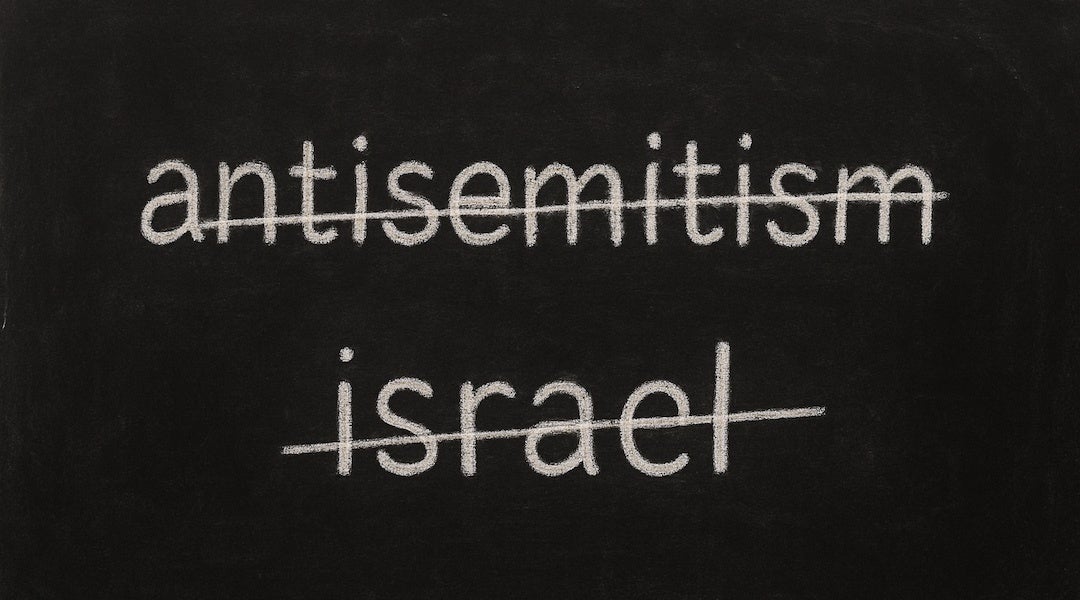I first noticed something was off on the first day of class. I had given my students in my “Sociology of American Jewish life” course at Tulane University blank index cards, asking them to write five words they associate with American Jews. The word antisemitism didn’t appear once, and neither did Israel.
Last week, it happened again. When I asked students to choose topics from the 2020 Pew report on American Jews for small group discussions, no one chose antisemitism or Israel.
What was going on? Antisemitism dominates conversations among lay leaders, philanthropists and academics. Universities are launching new antisemitism studies centers. Yet here were 20 Jewish studies students avoiding the subject. The Hillel director confirmed he’d seen the same pattern: low attendance at events on these topics.
So I turned to my students — almost all Jewish themselves — and asked them to write anonymous reflections on this pattern. I wanted them to help me understand what felt like a significant shift from previous years, when these topics dominated classroom discussions.
Here is what I learned:
My students are exhausted. Not physically tired, but soul-weary from the constant barrage of antisemitism they encounter online. “Seeing constant antisemitism and antizionism has just made me so tired of it that it’s easier to ignore,” one wrote. “When I’m in Jewish spaces, I prefer to focus on the positive things … because it feels like antisemitism is a battle we’re already losing.”
They see antisemitism everywhere on social media — on Instagram, TikTok, even in comment sections barely related to Jewish topics. It’s become so normalized that one student admitted they “don’t even get surprised anymore when I see crazy antisemitism.” Another described it as being talked about “on the news so much as well as talked about in everyday life” that bringing it down further in class feels redundant.
But perhaps most revealing was this: They want their Jewish studies classroom to be different. “When I am in class, I enjoy learning about new topics and not about topics that I already talk about and experience every single day,” one student explained. Another put it more bluntly: “I don’t want the thing I bring up when talking about Judaism to be antisemitism in a class setting, where it is something we deal with all the time outside of it.”
The Israel conversation has become even more fraught. Students described being paralyzed by the fear of “saying the wrong thing by accident.” The topic has become so contentious that it’s “a very sensitive time period because of October 7th,” making people hesitant to speak up even in Jewish spaces. One student noted that discussing Israel has become “a dividing point even within the Jewish community,” creating rifts with family members and friends.
The pressure to be perfectly informed weighs heavily on them. ‘I don’t feel as educated on that, and in most contexts, I don’t want to bring it up because I don’t want to say the wrong thing by accident,’ one student confessed. They feel caught between the expectation to have authoritative opinions as Jews and their honest uncertainty about complex issues. Another described finding it ‘hard to delve into’ topics when unsure if they’re conveying accurate information. This burden of representation — the unspoken expectation that every Jewish student must be an articulate defender of their people — has become another silencing force.
I don’t take this silence as apathy, but rather about self-preservation. My students are keenly aware that even among close friends, there might be hidden antisemitism. They’ve learned to perform constant risk assessments about when and where it’s safe to express their views. As one observed, people are either intensely engaged with these topics or “have little to no interest talking about it … and don’t feel comfortable sharing their opinions.”
What struck me most was their desire to reclaim Jewish identity from being primarily defined by hatred against Jews. These young Jews want to explore their heritage, culture, and traditions without every conversation circling back to those who despise them. They’re not in denial — they know antisemitism exists. They’re just tired of it taking up so much space in their Jewish lives.
This generational shift matters. While Jewish institutions pour resources into combating antisemitism and defending Israel — crucial work, to be clear — our young people are signaling they need something more. They need spaces where being Jewish isn’t synonymous with being embattled. They need opportunities to engage with Jewish life, learning, and culture on its own terms.
My classroom revelation taught me this: If we want to engage the next generation, we need to balance necessary vigilance with joyful exploration of what makes Jewish life meaningful. Our students aren’t abandoning the fight — they’re asking for the chance to remember what we’re fighting for.
JTA has documented Jewish history in real-time for over a century. Keep our journalism strong by joining us in supporting independent, award-winning reporting.






